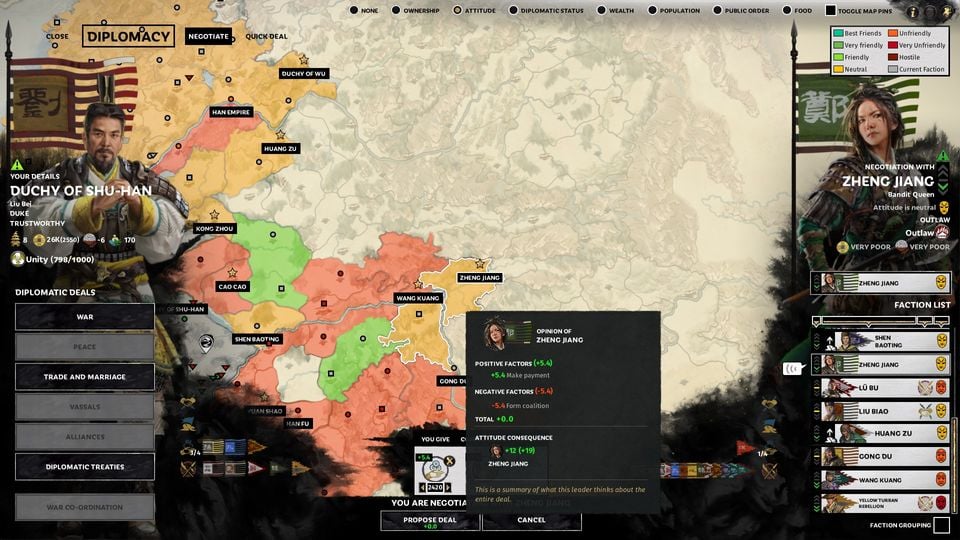

Total War: Three KingdomsĪnyway, we didn’t get too deep into the character system. Do you add another rank of spearmen because you’ll get an accompanying bonus to their skills, or do you take the cavalry you know you need even if you’re less attuned to using them? And will archers finally be less overpowered? Time will tell. A “Fire” general, for instance, is colored red and has bonuses related to cavalry, while the blue “Water” general is better at leading ranged units.Īt its heart this is just an extension of the rock-paper-scissors algorithm underpinning Total War’s mechanics, but it makes for interesting strategic decisions.

Each general has a focus as well, based on elemental traits. They can also develop rivalries, or even get so jealous they choose to leave for a different faction and take their army along with them. Generals can be appointed to government positions, a throwback to the dynasty systems people liked in previous Total War games. Regardless, it’s a more character-driven game than any Total War since probably the original Rome, and that’s a good thing in my book. I’ve seen no evidence of the unique story-driven battles I loved in the Warhammer games, but I wouldn’t be surprised if they’re in here as well. Your various named generals are now essentially “Hero Units,” with unique armor, weapons, and skill trees. Romance draws on historical records, but injects the story with some larger-than-life actions on the parts of its characters. You’re perhaps more likely to know it from Romance of the Three Kingdoms though, a loosely historical novel written more than a millennia after the actual events, and which forms the basis for many Three Kingdoms-set adaptations (including the Dynasty Warriors series). It’s a real-life historical era, the stock-and-trade of Creative Assembly pre- Warhammer. Three Kingdoms takes as inspiration the fall of China’s Han dynasty and the ensuing civil war, a.k.a. To that, Creative Assembly came up with a pretty interesting answer. The question: What happens when you’re once again constrained by human history? Total War: Three Kingdoms Freed from the confines of actual human history, the Warhammer games were able to create livelier and more iconic battles, a better narrative framework for your actions, unique win conditions and tech tree unlocks-all sorts of ideas that were (for the most part) new to the series. And that’s great, except they also upended most of the Total War formula.

The two Warhammer entries have proven, I think, more popular and successful than anyone could’ve imagined. Total War: Three Kingdoms is an interesting challenge for the nearly 20-year-old Total War series.


 0 kommentar(er)
0 kommentar(er)
